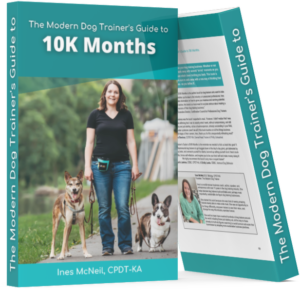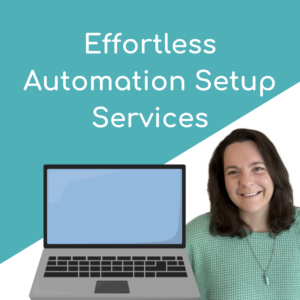This is a guest article by Molly Sumner CDBC, CPDT-KSA, CFE. Molly is a professional dog trainer and behavior consultant as well as a certified compassion fatigue educator. Her passion for dog training doesn’t stop at clients and their dogs but also extends to her fellow colleagues. Molly sees the personal drain that caring so deeply for animals can have on professionals so she’s graciously agreed to share some helpful tips to prevent burnout and compassion fatigue.
Molly just appeared as a guest on our podcast for Episode 10 Molly Sumridge on Compassion Fatigue in Pet Professionals. Listen in to learn about the differences between compassion fatigue and burnout and the symptoms to look out for!

2017 is less than a month away. December is usually quite hectic with the holidays, up and down schedules, commitments and gatherings, and the cold or flu trying to take over the minute we feel worn out. It is easy for the month to blow through and next thing you know it’s January, the year is over and you’re left with the new year stretched out in front of you with little to no guidance on what to make of it.
Don’t let December consume you. And don’t miss out on creating a plan for the new year that will set you up for major success and happiness in the new year. Even if you read this after the new year, it’s not too late to set yourself up to have one of the best years of your life both personally and professionally. I write and speak a lot on compassion fatigue and burnout, and truth be told, most of the professionals I meet are struggling in some way or another. But making a few changes in our lives we can significantly change how we feel and in response, can propel us to some very exciting and successful outcomes.
Here are 10 (YES 10!) tips to make 2017 your best year while staving off burnout and compassion fatigue.
1. Goal Setting
New Year’s Resolutions statistically speaking – FAIL. But actual attainable goal setting can be successful if you do it right. Goal setting using the SMART system can be very effective. Make sure any changes you want to make to your life are: S – specific, M – measurable, A – assignable, R – realistic, T – time-bound. There are many goal setting systems. Pick one that resonates with you, dedicate a week to work on the process and then commit to seeing it through with weekly, monthly, and quarterly check ins.
2. Contact Boundaries
The hard truth is, your business will not fail if you don’t reply to that message immediately. In fact, the opposite is true. The more you are accessible to your clients, the more likely you are to give bad advice, create scheduling errors, and become burned out or compassion fatigued. Spend a week or two designing a contact schedule where people can reach you or you will respond to their messages. This should include email, phone, text messages and any other communication portal your clients use to reach you. Have designated “no contact” times where you will not check your email or messages and will not answer. Consider leaving your device in a space away from you during that time so you can be completely focused on yourself, a task or your loved ones. You’ll be happier and healthier for it.
3. Conquer the Email Monster
How many emails are sitting in your inbox? 20, 50, 300? Clean it out and create a system for filing messages. An even better solution is a program like Boomerang that can move emails in and out of your inbox based on your availability and remind you when someone has failed to reply to a message. For more on beating the email blues, check out my blog on the topic.
4. Express Gratitude
Positive Psychology studies have shown that practicing gratitude changes how your brain filters the world. By focusing on the good things we have, our brain finds new opportunities for us. The opposite applies too. If we focus on the negative, our brain only filters in more problems. So turn the dial to success. On a piece of paper, list 5 things you’re grateful for. Do this daily. After a week or so, the information your brain picks up will start to change.
5. Talk to Yourself
Now I don’t mean out loud, in a crowded space, without at least some kind of Bluetooth in your ear. This that case it’s fine. But really what I mean is taking a moment and asking yourself how you’re feeling. After that, asking yourself what is causing those feelings. And from there asking yourself what might help encourage or discourage those feelings. Cognitive-behavioral psychology teaches us that we have much more control over how we feel than we think we do. This is also the basis for beginning a mindfulness practice. It really is that simple.
6. Celebrate – YOU!
It is likely you will spend some part of the end of the year celebrating a birthday, at a holiday party, or some other social celebration, but how often do you celebrate you? I don’t just mean on your birthday either. Celebrating yourself meaning taking stock of your accomplishments, big or small, whatever matters to you – and only you – and honoring them. The celebration could take many forms. It could be as simple as writing them down to acknowledge them. Or it could be as big as having a get-together or a meal to celebrate. The size of the act does not matter. It is the acknowledgment that matters. Ignoring our accomplishments defeats us and leaves us feeling resentful of our world. It inevitably will hold you back. Don’t feel guilty celebrating yourself – you deserve it!
7. Pay it Forward
Expressing gratitude to another is powerful for the giver and the receiver. Generally, our best clients come from personal referrals. 88% of consumers trust online reviews as much as personal recommendations. So share the love. Leave positive reviews on people’s business websites or offer to write a testimonial. Leave positive feedback on receipts. This feedback releases happy chemicals in both the receiver and the giver – it’s a win for all!
8. Get Moving
Agility doesn’t count. Seriously, though, with the long hours you put into your business I’m guessing you don’t get out much, but moving is some important to physical and mental health. Try something simple if you don’t move around much, such as a short walk around the block, or even just 2-3 extra trips of the stairs or back and forth to the car. For you over achievers (you know who you are), try a yoga class, crossfit, a morning bootcamp, or a class at the YMCA. Anything to get your heart going just a little faster once a day will change your life.
9. Get Out of Your Box
If you’re like me, your life revolves around people and dogs with little room for anything non-animal related. Any activity that is out of this realm can feel weird or uncomfortable. But it is so important to escape once in awhile. Try a group class in something you know little about. Go to a lecture, concert, or play. Driven to make a difference? Volunteer to help at a food pantry, meals on wheels, habit for humanity etc. You don’t have pick something you feel a connection to either. It is about getting out of the norm and trying something new. It is good for the brain, opens up your social circles, and breathes fresh air into your life. It might even connect you with future opportunities you’ve never even dreamt of.
10. Take 10
I get it, you’re busy. I am too. After writing this I have a webinar to attend and a client to go see. But I am also “Taking 10”. I am taking 10 minutes to do something that heals and helps me. It could be meditation, reading a book, journaling, being spiritual, coloring, cooking a meal or just breathing. What it won’t be is time on social media, answering emails, or interacting with anyone or anything. It is 10 minutes of solitude. If you think that’s too much, or too hard – you need 20! But start with 10.
If you only do one thing on this list let it be the last one. Then work on the rest. Your industry needs you. The world needs you. Take care of yourself in a meaningful way so that you can be there for all those who need you. Self-care isn’t selfish. Let’s make 2017 an awesome year, by focusing inward and then letting our light sign. For more help and suggestions, visit: http://www.mollysumridge.com/
Molly Sumner CDBC, CPDT-KSA, CFE, is a professional dog trainer and behavior consultant as well as a certified compassion fatigue educator. Her passion for dog training doesn’t stop at clients and their dogs but also extends to her fellow colleagues. Molly sees the personal drain that caring so deeply for animals can have on professionals. She has dedicated a significant part of her career to learning about how to help her colleagues better their business and themselves. In addition to her dog training education, she is also a QPR Gatekeeper and Online Suicide Prevention Specialist.
Dog Training Business Tips
Receive valuable dog training business tips and resources right in your inbox! Subscribe to The Modern Dog Trainer now by submitting your name and email below. Don’t forget to let us know what you want to learn more about!
[mc4wp_form id=”2494″]



